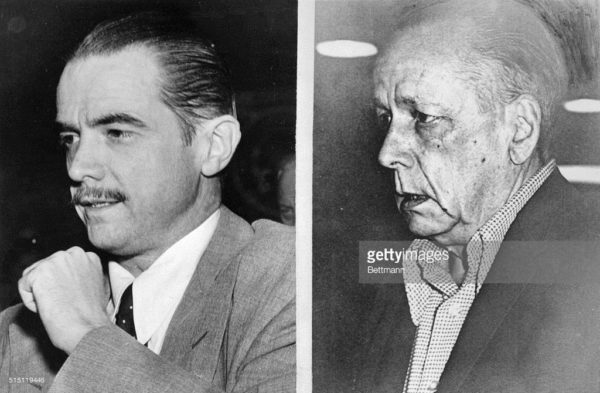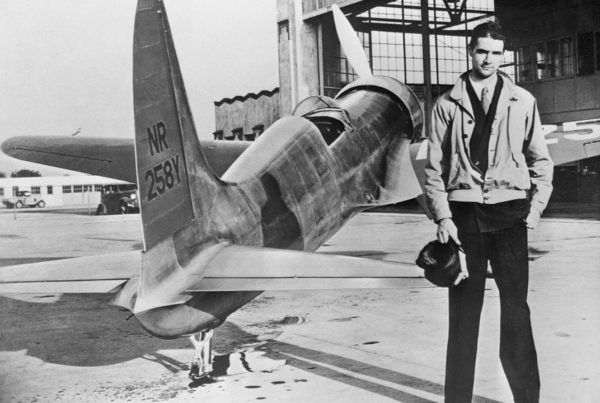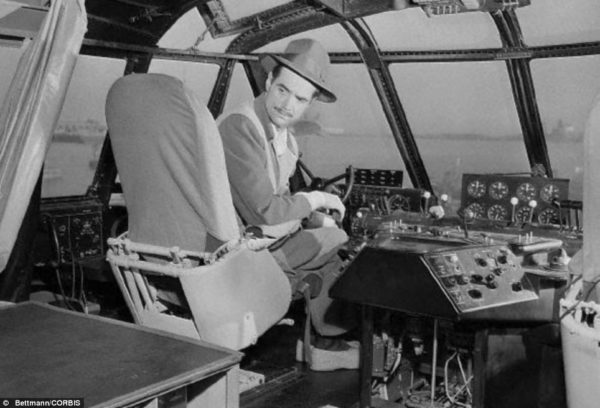I’ve been having a devil of a time finding a reliable transcriptionist for hire. I’ve already been through two and after many weeks have no transcripts. I now have around 6 hours worth waiting to be completed so if there’s anyone out there who has some experience and can give me a reasonable turnaround time, please let me know at emedhus@gmail.com, and let me know your hourly rate.
Don’t forget about Erik’s Hour of Enlightenment radio show TONIGHT at 5:00 PM PT/7:00 PM CT/8:00 PM ET. Pro-wrestler, motivational speaker and spiritual life coach, Jamin Olivencia, will discuss who might need a spiritual coach and why. No more than 15 minutes before the top of the hour, call 619-639-4606 to ask Erik your question. There are three ways to listen: Listen on the phone line, click on the “Listen” icon on the right sidebar of the blog or click on this link: http://liveparanormal.com/channeling-erik/
Speaking of the show, since the next two Mondays are Christmas Day and New Years Day, we won’t be having them for those two weeks, but check back on the 8th when we start up again!
Enjoy the last post in our interview with Howard Hughes, transcribed by Leah H. Thanks again, Leah!
Me: Now, you struck and killed a pedestrian, Gabriel Meyer, in Los Angeles. They say you were sober, but some think you had been drinking. Were you? And what affect did that have on you? That’s one of my biggest fears… running over somebody. Ugh.
HH: Was I sober? No. Was I on drugs? Yes. Had I been drinking? Yes. Did it affect me in any way? No.
Me: Wow. Why?
HH: Because in my world, the only person who was really important was me.
Me: Oh man. That’s harsh! All right, now some rumors, (this is from a blog member) speculate that Mr. Hughes went into hiding and was still alive for years after his quote- unquote death, or the degeneration of his mental state. That the person who was Hughes in his apartment was indeed someone else and not him, like a replacement of some sorts, where that he was some secret spy or agent, and that he lived another life, somewhere on a ranch or farm. May I ask this to be true, or just another rumor? Did he really have those health and germ phobia’s?(Well, we know that.)
HH: Did I have the germ phobias? Yes. Was that somebody else, while I was living somewhere else? No, that is a rumor.
Me: Okay. What was your relationship like with Jean Harlow, he or she also asks.
Emma: (laughs) Very loose, is what he’s saying.
HH: Jean Harlow was a very talented actress that I am very proud that I introduced her to the world. She was actually a replacement of another actress, because we started out making a non-talking movie and we turned it into a talking movie, and the original actress… her voice had too much of an accent so we had to replace her. So I found Jean Harlow, and she was stunning, and beautiful, and articulate, and really graceful, and so, did we have some fun together? Yes, we did. Was it a serious relationship? No, it wasn’t. It was more of a business relationship, with benefits.
Me: Oh, yeah. Friends with benefits. Yeah, you were around a lot of just gorgeous actresses. Did you do what Harvey Weinstein has allegedly done? Were you a sexual predator that was like, “Hey, you have sex with me, or I’m going to put you on the blacklist.” Or things like that?
HH: No, I was not. However, you have to understand that in the Hollywood world back then, in order for you, as an actress, to get far into your career you needed to have funding and you needed to have a powerful person behind you who could buy you certain roles. So, unfortunately, that is the way it was in those days.
Me: So basically they had to screw their way to the top.
HH: Pretty much. And, I was one of the richest men in the world. So, whenever women would be invited to my parties, I would actually work them with jewelry. I would have platters of jewelry, real diamonds, and just have waiters walk around and the actresses were allowed to just take whatever, and just take it home. So, it is, in some way or form, seduction, luring them into your bed but, with jewelry, with money, with the idea that I can provide anything for them.
Me: Okay, so, you were a player; you weren’t a sexual predator.
HH: Player. (laughs)
Me: Was your OCD… Did it have any spiritual significance?
HH: Well, it determined my whole life. And basically, the spiritual contract behind the OCD was to experience the best and the worst of me. I needed to experience the contrast between being on top of your game, being the best you can be, really, experiencing all the power that you have, but also the creativity, and the knowledge, and the understanding, and then really experiencing that contrast. So everything was linked to the…My whole life’s contract was linked to the OCD but, with the OCD functioning for you.
Me: Right. People with OCD get shit done!
HH: Yes.
Me: Eventually, if it’s not just the OCD personality, if it’s the illness, then, yeah, it can get in the way.
HH: It can lift you up to your high, and then it can bring you down to your low. My mission, or my contract, or my journey on this earth was all about experiencing the contrasts.
Me: Okay. Now, tell us about the end of your life. Did you have something called
[unintelligible] this one blog member says, which is a painful response to things that shouldn’t cause pain. Let’s start out with that.HH: Well, what it was, was that I was in constant pain, but it was because of the mental condition. With the codeine reduction, whenever you try to reduce that, you know the pains would come back, and your body will say you need it, you need it, so, it was more of that. My death was caused by several things; the codeine addiction, combined with malnutrition, combined with lack of hygiene. And so, it was a little bit of everything. And my body had deteriorated to a point to what people would call anorexic. It was just a skeleton that was left. So when your body is in that bad of shape, and, basically your organs are dissolving.
Me: So at the end you didn’t take baths, you stopped cutting your nails and hair for weeks and weeks. Because why?
HH: Well because first of all, I wasn’t going anywhere. Second of all, I was in such a distorted state in my mind, that hygiene didn’t even come into my mind. It wasn’t even part of my life.
Me: Was your death peaceful?
HH: It was long and painful.
Me: Aww. What was your transition itself like?
HH: The one thing that I thought was great about my ending was that I always wanted to die in an airplane. And so, when they took me from my room, when I was in a coma, I was still in my body. I was still present, but I died in the air, while they were transporting me, so in that aspect I always wanted that to happen. Not in the way that I was, of course, but I wanted to go out in an airplane, in the air, in the sky where I felt good. When I transitioned, I think everything went pretty smoothly. In some way or form, I had been waiting for it. I was done with life. I really didn’t want to be here anymore, and it is really complicated to live a life where you feel alone, and you hate it, but, still, at the same time, you can’t seem to allow yourself to open the door to allow somebody in, just because they might have a bacteria on them, or a dust speckle. So you’re in this constant state of confliction with yourself, and… I really went insane.
Me: Yeah, of course.
HH: I was no longer fully present in my body when it came to my senses. So, in some form, I wanted it to end. I wanted it to stop.
Me: Did you believe in the afterlife when you were alive? Or were you an atheist? Or…
HH: I believed that there was something there, but what it was? I believed that I was God.
Me: Oh no! Well, what did you believe would happen after you died?
HH: I actually flew, and I think that was just because I always imagined myself dying while flying. So, when I transitioned, I remember floating over clouds. I felt so light, so peaceful. I felt relieved, and basically I was flying. I couldn’t see my body, but I could see clouds, and I was just flying above it. That was how I transitioned, and then I eventually landed. (Laughs.)
Me: Where did you land?
HH: I landed in a very beautiful, bright place, and my family was there to meet me, and there were other people there to meet me, and Jean was there to meet me as well, because Jean died very young, and I did get affected by her death. It was a very painful death, and again, it was done by illness, it was done by doctors not doing their job, her illness being ignored. It affected me gravely.
Me: What was wrong with her? What did she die from?
Emma: it looks like it had something to do with lungs. He is saying that she had been ill for a little bit.
Me: Is there a diagnosis for Jean’s death or lung condition?
Emma: It just feels like a bronchitis kind of thing. I’m not really sure if that’s what it was, but it feels like there is definitely something going on with the lungs, and she didn’t get the treatment that she needed.
HH: Because she didn’t want to miss out on a day of shooting the movie, because they would get punished for it. They would either get a fine, a very high fine, or they would really get punished for it and get crappy movie deals afterwards. You know, they were very strict about that. She actually collapsed while making a movie, and collapsed in the actor’s arms, and died.
Me: Wow.
HH: So, It was an unforeseen death, because she was only in her 20s.
Me: Was your death, on the airplane… It wasn’t an accident, or murder, it was natural?
HH: Yeah. I did it to myself, people.
Me: There was one more then one will found after your death. One was called the Mormon will. Which one was the correct one, the one that was eventually honored, or not?
HH: No, not that one.
Me: Was the one that was honored, the real will?
HH: No. No. However, I was constantly changing wills. Whenever I had an idea in my head, I would change it. Got to the point where I needed to have faith in people, I needed to have faith in something.
Emma: And it looks like there was a group of people that convinced him to handover the responsibilities of the business, and everything to them. And basically, although they had claimed that decisions were made from him, really they were the ones making the decisions.
HH: I was just the one signing it because I was not in the right state of mind. I wasn’t sure what I was signing, and I really didn’t care anymore. So, they basically controlled everything. They made a will, and I just signed it.
Me: Was that the Mormon will?
HH: Yes.
Me: Okay. Were they Mormons? Why is it called the Mormon will?
HH: Well, it’s kind of like a church. So, now they get the name the Mormon mafia. (Laughs) But, it was related to a church. Not that I ever went to church.
Me: I just have a few more questions. Here’s one: “I would like to know if Melvin Dummar was telling the truth that Howard Hughes left $156 million to him.” Whoever that is.
Emma: He is saying yes. That is true. However, he never received it.
Me: Aw, that’s not fair.
Emma: They would always mix up the… It was always changing so…
Me: Okay. Now, we know what your spiritual mission was, we know that you were here to learn through polarity, right? But what about to teach? Were you here to teach anything?
HH: Well, I was here to add to science, and to add to inventing a new way of traveling in the sky.
Me: Clearly.
HH: It was a little bit of everything. In some way or form, my OCD also created my brilliance, and because my passion for anything to do with machinery and really, anything that had to do with illnesses. I think I was just here to give the aviation part and the science part, really, an extra push, and really give them the tools to do the things that nobody else wanted to do. Also, when it came to the aviation, the sky was run by one company and they kind of had a one time thing for it. So, I opened that path for other airlines to become part of the sky.
Me: Oh, okay. So, did you have any regrets?
HH: Yeah, I regret that I eventually created my own asylum, and I retreated in it. I do regret that I didn’t allow people into my life anymore, at the end. I regret the feeling of abandonment, and feeling alone, because I was the one who created it. But, overall a lot of people, a lot of people, will look at my life and go, “Wow, that was a crazy cuckoo.” But, with my illness, I think I accomplished and achieved great things for the world and I lived life to the fullest most of the time. So I experienced everything, and I had done everything, and I do see myself, or my life as a success. I contributed to the world and I did succeed in my own contract, so I think it was a very successful life.
Me: I agree. After you crossed over, did you have any big insights? New insights?
HH: Yeah, I started to, you know, when it was about heaven and about God and all of that, I didn’t really pay any attention to that during my lifetime. It just wasn’t that important to me. When I crossed over, it was good to see, or to feel a little bit of both. When you cross over you don’t just see things, you feel things. It’s mostly what you feel. It was good to see that that everything has a blueprint. I love blueprints, and I loved to see how everything works, and works together to a glorified unification. And I love the blueprints of every person’s life. How one thing led to another thing, led to this, and then led to this, and everybody was pushed in a certain direction in order for not only that person to complete that contract, but also for that person to complete the contract in all of it. There is perfection, and there is drive in every person’s life, and just realizing that in seeing the connections how this person’s action control of that person’s behavior and so on and how it all comes to this beautiful, harmonious place. For me, that was mind blowing. I remember, that was a really big highlight of understanding of how, let’s call it, “the machine of the universe,” how it is so oiled and perfectly working together.
Me: Sounds like a mechanical engineer’s dream. Epiphany. Can you share another life that most influenced your one as Howard Hughes.
Emma: Yes, and this is a life of abuse. However, this is a life in the 12th century where he’s showing me he was some kind of priest and he would use and abuse young boys that would work with him, or that would stay in his facility, is what he showing me. It was, in someway, the other side. Being on the other side, actually inflicting those fears and anxieties on to other people and actually enjoying being in control of another human’s life. He’s saying, that a lot of people will say well, that was a horrible, very negative experience. But, it was all about being in control of another person. Although, it was not done with love, it was still a very satisfying life to have that perspective.
Me: Okay, real briefly, because we’re running out of time, so I just want to ask this really quickly. Can you share anything that no one else knows about you?
HH: Yes, while I was in my state of paranoia, while I was in my excluded state…
Emma: He would start seeing his mother in front of him.
HH: Now, at the time, she would always call for me. She would call me Sonny. It was my nickname. Because my dad’s name was also Howard, and so in order to distinguish us two, they called me Sonny. And, at the time I always thought that she was just an illusion and she was one of my paranoia hallucinations. Later, when I crossed over, I found out that she really WAS there, and I was seeing a spirit who was trying to help me because, although she had given me this illness in someway, she had introduced it to me, when I would see her she would tell me that I needed to take a bath, and that I needed to do this. And I would say go away, you’re not real. I would fight it. But, it was really interesting to see later on, that she was really there, and it was not one of my hallucinations. So, it was mind blowing to me, after seeing all those people that were never there, the one person who WAS really there, I didn’t believe.
Me: Two more things. Do you have any message or advice for us, and also then at the last I want to see if Erik has anything to ask.
HH: Well, I just want to advise to people who are having a mental illness or who are having OCD, or any kind of mental illness, to not be afraid to talk to people about it. Because, a lot of people will hide it for a very long time, because they are ashamed of it, because they don’t understand it themselves, because they’re confused about it. So, allow people to help you, and allow people, in some way or form, to guide you in this journey. Because I blocked everyone out and, if I had just allowed people to help me, and to really listen to the people who really did care about me. Because the people who did care about me did talk to me about this, but I would fire them. I would say leave. I don’t ever want to talk to you again. I was in complete denial of what was going on. So, listen to the people around you. Allow yourself to ask for help, and don’t ever think that you are less than anyone else <because not because you have a mental illness that you don’t matter, >or that you don’t fit in. There’s always a groove, and there’s always a purpose for that person. So know that in this beautiful blueprint of a universe, that for every single one of you who is suffering from a mental illness, there is a purpose why you have it, and try and use it to help others. Try and be an example to others on how you can control it and live with it.
Me: Okay. What about you Erik? Any questions?
Erik: Were there any women who turned you down because you had so much money and so much wealth, and so were there any women who said no, no jewelry for me?
HH: Yes, there were a few women who really wanted to make their careers on their own who were really not very flattered with my attempts.
Me: Anybody in particular that we would know?
Emma: He’s showing me, what’s her name? Elizabeth Taylor turned him down. He had offered her a huge jewel for around her neck. He showing me kind of a roundish diamond on a necklace. And she actually turned him down, and left. So, not everybody…(Laughing.)
Me: That’s awesome. Thank you, Mr. Hughes for what you contributed in life, and also what you have contributed here. I really appreciate you.
HH: Thank you very much for listening to my story and for being an inspiration for everyone out there. And, I just want to thank Erik because the work that he does and how he helps people with bipolar disease, with OCD, you guys don’t see what he’s doing behind the screen, what he is doing behind the curtain. But he is pulling, and helping people to rise above their illness and to become greater than they ever felt they could be. So for that I really want to say thank you, and I appreciate what a great attribute he is to the universe. So, Mom, you should be very, very proud of your boy.
Me: I am SO proud. Thank you so much, and thank you Emma. You can contact Emma atwww.emanuellemcintosh.com. Anything else you want to share Emma?
Emma: You can find me on Learn it Live as well. Learnitlive.com, and I’m not taking any appointments as of now. However, starting December 2017 I am re-opening my schedule so feel free to give me an email on my website at emanuellemcintosh.com and I can try and get you guys in again.
Me: All right. Thank you! Bye Erik, I love you!
Erik: I love you too, Mama! Give everyone a hug for me, okay?
Me: Will do. Bye.
Erik: I love you! (Blows kisses.)
Emma: Bye!

Howard Hughes in 1947 and 1972



